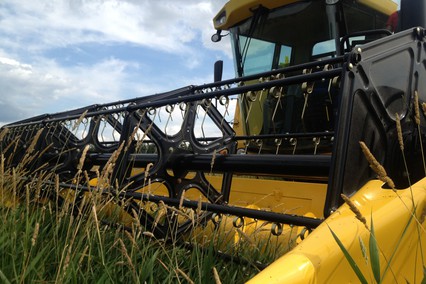Description
Crop farmers, also called field crop growers must possess knowledge of crop science, as well as experience. Their work is diverse, covering areas such as pest control, horticulture and business contracts. Some work on family farms, others are employed by large corporate growing operations. Advancement in the field is generally experience-based; however, formal education can increase employment opportunities.
Tasks:
1. Plants, cultivates, and harvests specialty crops, such as alfalfa, cotton, hops, peanuts, mint, sugarcane, and tobacco, applying knowledge of growth characteristics of individual crop, and soil, climate, and market conditions: Determines number and kind of employees to be hired, acreage to be tilled, and varieties and quantities of plants to be grown.
2. Selects and purchases plant stock and farm machinery, implements, and supplies.
3. Decides when and how to plant, cultivate, and irrigate plants and harvest crops, applying knowledge of plant culture.
4. Attaches farm implements, such as plow, disc, and seed drill to tractor and drives tractor in fields to till soil and plant and cultivate crops.
Qualifications and training required:
A crop farmer can begin their career as a farmhand or farm worker, which offers the opportunity to learn the duties to become a farm manager or crop farmer that oversees an entire operation. Crop farmers can gain education for career advancement, which can include studying different areas of the farming and science fields.
Formal education is not required to be a crop farmer, with some farmers entering the field through a family business. Crop farmers interested in gaining formal education may consider bachelor's degree programs in agronomy, agricultural business or other related animal or crop sciences.
Tasks:
1. Plants, cultivates, and harvests specialty crops, such as alfalfa, cotton, hops, peanuts, mint, sugarcane, and tobacco, applying knowledge of growth characteristics of individual crop, and soil, climate, and market conditions: Determines number and kind of employees to be hired, acreage to be tilled, and varieties and quantities of plants to be grown.
2. Selects and purchases plant stock and farm machinery, implements, and supplies.
3. Decides when and how to plant, cultivate, and irrigate plants and harvest crops, applying knowledge of plant culture.
4. Attaches farm implements, such as plow, disc, and seed drill to tractor and drives tractor in fields to till soil and plant and cultivate crops.
Qualifications and training required:
A crop farmer can begin their career as a farmhand or farm worker, which offers the opportunity to learn the duties to become a farm manager or crop farmer that oversees an entire operation. Crop farmers can gain education for career advancement, which can include studying different areas of the farming and science fields.
Formal education is not required to be a crop farmer, with some farmers entering the field through a family business. Crop farmers interested in gaining formal education may consider bachelor's degree programs in agronomy, agricultural business or other related animal or crop sciences.
Companies in profession
Best students in profession
Professions you might be interested in
Virtual internship
Company recommended study programs
Lauksaimnieku organizāciju sadarbības padome
1 recommendations
Augkopība, kvalifikācija: Augkopības tehniķis
Zaļenieku komerciālā un amatniecības vidusskola
- 2 company recommendations
In our portal we are using cookies. Using the portal, you agree to the use of cookies. You can find out more!
Accept


